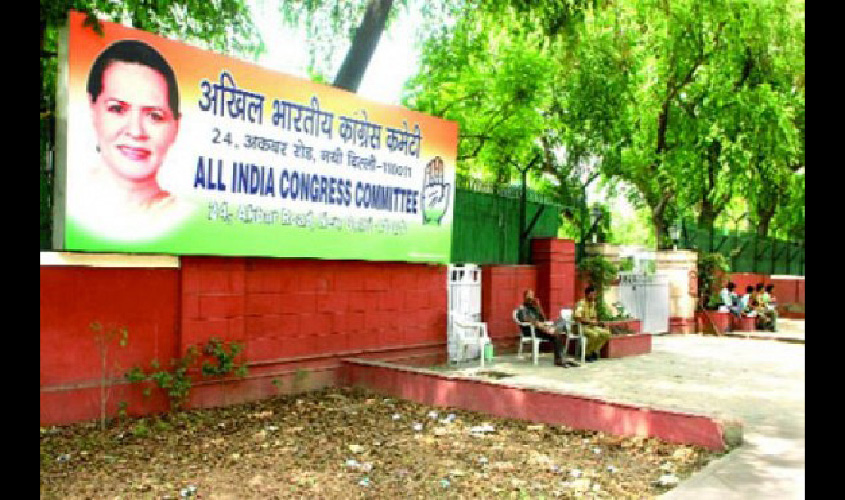All the appointments that have so far been announced are said to be hand-picked by Rahul Gandhi, with no suggestions being taken from the outgoing people.
Under new Congress president Rahul Gandhi, nine positions in the All India Congress Committee (AICC) have witnessed new appointments in the course of 15 days, and the pattern is likely to continue, with more announcements being made about crucial appointments.
Sources said that replacing the old faces with new ones and making AICC appointments in instalments is part of Rahul Gandhi’s strategy to complete the tricky task without confrontation. It is likely to take another 20-25 days for Rahul Gandhi to finish announcing important AICC appointments and a few general secretaries might also be announced before the Karnataka elections, the sources said.
Only general secretaries who are AICC members can become part of the 24-member Congress Working Committee (CWC); therefore, the speculation is that Rahul Gandhi might announce some of the CWC members. The tradition that started under the presidency of Sonia Gandhi of accompanying a long list of permanent and special invitees in CWC, is also likely to continue under Rahul Gandhi. All the AICC appointments that have so far been announced are said to be hand-picked by Rahul Gandhi, with no suggestions being taken from the outgoing people who have held these positions for a long time.
Janardan Dwivedi, former communication general secretary of AICC who held the position for over a decade, was replaced by Ashok Gehlot. While both are seen as senior faces in the Congress, Gehlot received credit for Congress’ performance in Rajasthan and thus his AICC appointment is seen as a reward, while a counter narrative is that Gehlot vacated the front office position in Rajasthan where young faces are waiting to be given bigger responsibilities. However, people
In several new appointments, the generational shift Rahul Gandhi spoke about at the plenary last month was apparent. Rajeev Satav, MP from Maharashtra, is now AICC in-charge of Gujarat, where, since his appointment on 31 March, he has conducted meetings with Pradesh Congress Committee (PCC) workers, frontal organisations and senior leaders of the state and has already got caught by the Bharatiya Janata Party (BJP) for an old tweet in which he supported Medha Patkar’s Narmada movement. Satav has also been given additional charge of Dadra and Nagar Haveli and Daman and Diu.
Another young appointtee in the AICC is Yashomati Thakur, MLA from Maharashtra, who is said to be keen about involving more women politicians in his team. Jitendra Singh, former Youth Affairs Minister and Minister of State for Defence in UPA, has replaced senior Congress leader B.K. Hariprasad, whose performance had been unimpressive as AICC in-charge of Odisha. Other appointments include Anugrah Narayan Singh as AICC in-charge of Uttarakhand, Shaktisinh Gohil as AICC in-charge of Bihar, replacing C.P. Joshi and appointment of Chandan Yadav as secretary, AICC, for Chhattisgarh.
Congress’ SC and OBC departments, too, have witnessed new appointments, with Nitin Raut taking over as the chairman of the SC department of AICC. Raut’s appointment is indicative of Rahul Gandhi following his own will in appointments, since Raut, a three-time MLA from Nagpur North constituency, had not been given any responsible role for a while despite his popularity on the ground. On the other hand, Tamradhwaj Sahu has been strategically appointed as chairman, OBC Department of AICC, keeping in mind the upcoming elections in the state where OBCs make up for a significant voter base for Congress.

